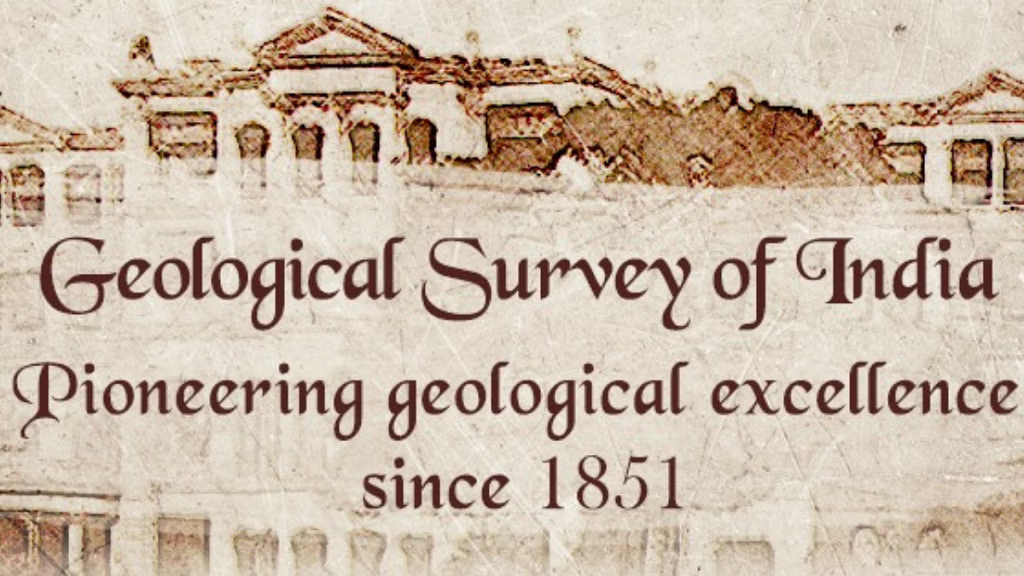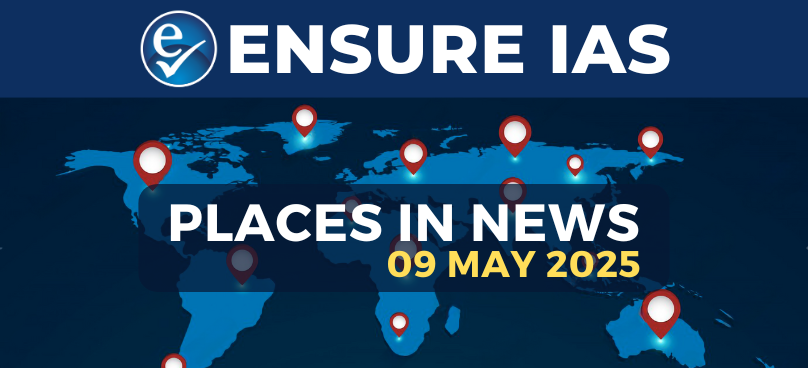- Courses
- GS Full Course 1 Year
- GS Full Course 2 Year
- GS Full Course 3 Year
- GS Full Course Till Selection
- Online Program
- GS Recorded Course
- NCERT (Recorded 500+ Hours)
- Polity Recorded Course
- Geography Recorded Course
- Economy Recorded Course
- AMAC Recorded Course
- Modern India, Post Independence & World History
- Environment Recoded Course
- Governance Recoded Course
- Science & Tech. Recoded Course
- International Relations and Internal Security Recorded Course
- Disaster Management Module Course
- Ethics Recoded Course
- Essay Recoded Course
- Current Affairs Recoded Course
- CSAT
- 5 LAYERED ARJUNA Mentorship
- Public Administration Optional
- ABOUT US
- OUR TOPPERS
- TEST SERIES
- FREE STUDY MATERIAL
- VIDEOS
- CONTACT US
Geological Survey of India Celebrating 175 Years of Excellence
Geological Survey of India Celebrating 175 Years of Excellence
04-03-2025

- In March 2025, the Geological Survey of India (GSI), one of the oldest and most prestigious scientific institutions in the country, is set to celebrate its 175th year of geoscientific legacy in 2025.
- GSI has played a crucial role in geological mapping, mineral exploration, disaster studies, and geoscientific research, significantly contributing to India's industrial, economic, and infrastructural development.
- To mark this historic milestone, GSI has planned grand commemorative celebrations, including a series of events aimed at public engagement, scientific awareness, and community participation.
Pan-India Walkathon
- As a curtain-raiser event, GSI will organize a nationwide Walkathon under the theme "Geoscience for a Safe World."
- This event will bring together geoscientists, students, policymakers, and the general public across all GSI offices in the country.
- The Walkathon aims to raise awareness about the significance of geoscience, encourage future generations to explore the field, and highlight GSI’s long-standing contributions to the nation.
Foundation Day Celebrations
- GSI will showcase its rich scientific legacy through various engaging events, including:
- Exhibitions featuring a historical photo gallery depicting GSI’s 175-year journey.
- Publication of insightful books covering the achievements and advancements in geoscience.
- Unveiling of a Special Postal Cover, My Stamp, and two geoscientific mobile apps.
- Public engagement activities, including competitions, interactive events, and a blood donation camp, highlighting GSI’s commitment to social responsibility and community welfare.
About Geological Survey of India
- Establishment and Evolution
- Founded in 1851 by Sir Thomas Oldham.
- Initially established to explore coal deposits for the Indian Railways.
- Over time, it expanded its scope to include geological mapping, mineral exploration, disaster studies, and geoscientific research.
- Organizational Structure
- Headquarters: Kolkata.
- Regional Offices: Lucknow, Jaipur, Nagpur, Hyderabad, Shillong, and Kolkata.
- Nodal Ministry: Ministry of Mines.
- Core Functions of GSI: GSI serves as a repository of geological information and plays a pivotal role in India's mineral resource assessment, policy-making, and disaster management. Its key functions include:
- Geological Mapping: Systematic documentation of surface and subsurface geological processes in India and offshore regions.
- Mineral Exploration: Identification and assessment of mineral resources essential for India's economic and industrial growth.
- Disaster Studies: Conducting research on seismology, landslides, and glaciology to enhance disaster preparedness.
- Geotechnical and Geo-environmental Studies: Evaluating geological stability and environmental impacts for sustainable development.
- Data Management and Dissemination:
- Creating and updating national geoscientific information databases.
- Conducting ground, airborne, and marine surveys using advanced technologies.
- Utilizing computer-based spatial data management systems for accurate geoscientific mapping.
- Contributions to Policy and Economy
- GSI provides objective, impartial, and up-to-date geological expertise crucial for policy-making decisions in various sectors.
|
Also Read |
|
| FREE NIOS Books | |



